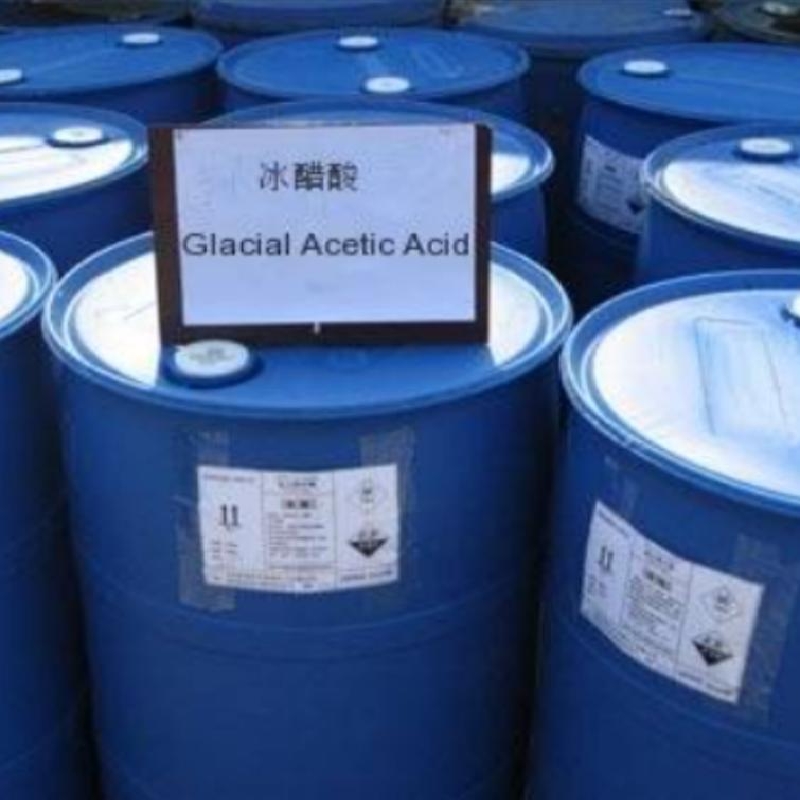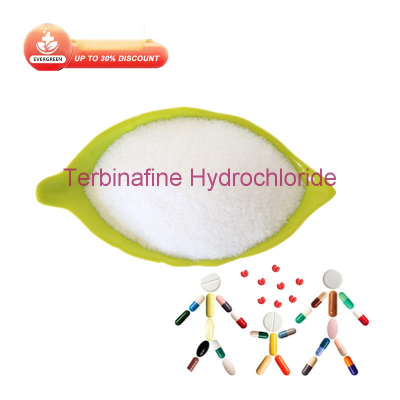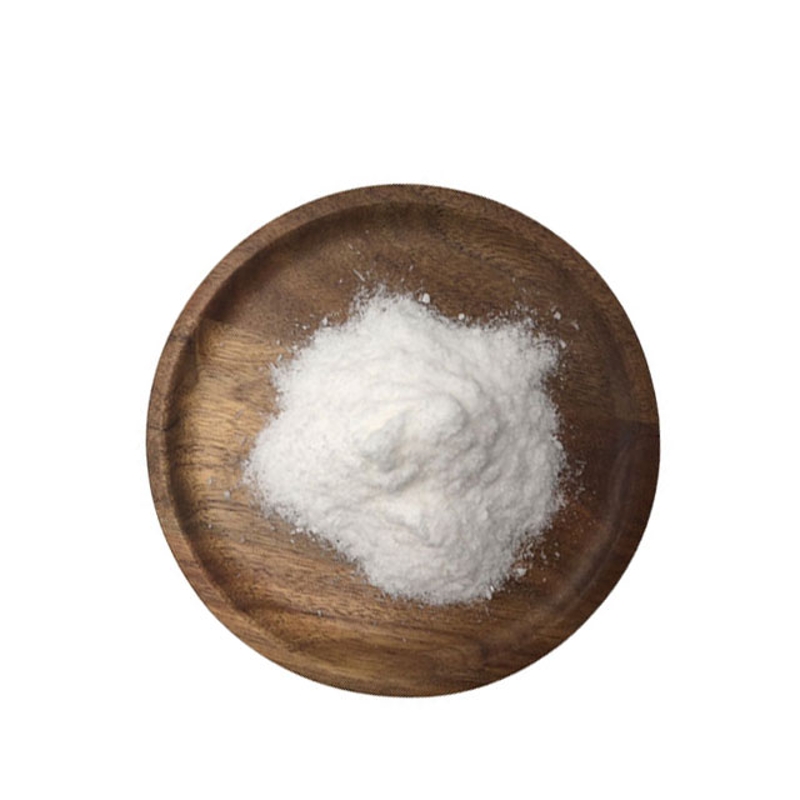-
Categories
-
Pharmaceutical Intermediates
-
Active Pharmaceutical Ingredients
-
Food Additives
- Industrial Coatings
- Agrochemicals
- Dyes and Pigments
- Surfactant
- Flavors and Fragrances
- Chemical Reagents
- Catalyst and Auxiliary
- Natural Products
- Inorganic Chemistry
-
Organic Chemistry
-
Biochemical Engineering
- Analytical Chemistry
- Cosmetic Ingredient
-
Pharmaceutical Intermediates
Promotion
ECHEMI Mall
Wholesale
Weekly Price
Exhibition
News
-
Trade Service
Sudden syncope, accompanied by blood in the stool, hematemesis, and even hemorrhagic shock.
.
.
At the end of November, the Pediatric Digestive Endoscopy Center of Sichuan Provincial People's Hospital admitted an 11-year-old boy in critical condition
.
After a series of symptomatic treatments to relieve the condition in time, the doctor discovered that the boy had Helicobacter pylori infection
.
"The 11-year-old boy fainted and was admitted to the hospital with hematemesis shock.
Some time ago, Xiao Ming (a pseudonym), an 11-year-old boy, fainted at home, pale and confused, and was immediately taken to a nearby hospital by his family for treatment
.
The
doctor considered acute gastroenteritis.
Infusion treatment was given to Xiaoming
.
That night, Xiaoming who was undergoing infusion began to vomit a lot of blood and fainted again, accompanied by hemorrhagic shock, so he was rushed to the children's intensive care unit for rescue
.
He
suffered from hemorrhagic shock, and Xiao Ming was in very good condition.
He was critically ill and his condition was developing rapidly.
After being transferred to many hospitals, he finally came to the Pediatric Gastrointestinal Endoscopy Center of Sichuan Provincial People’s Hospital, where he was treated through the 24-hour green channel for gastrointestinal bleeding
.
After admission, the doctor learned that Xiao Ming had been there a week ago I have experienced stomach discomfort and black and loose stools, but the parents did not pay attention to it
.
The
doctor urgently discussed the treatment plan and decided to give active anti-shock, continuous blood transfusion and life support.
At the same time, the emergency gastroscope was performed to clarify the cause of the bleeding
.
The
doctor recalled, passed Gastroscopy revealed that the child had a huge ulcer in the duodenal bulb.
The carbon 13 breath test was used to confirm that the child was infected with Helicobacter pylori
.
Xiao Ming's mother said that her family had a history of Helicobacter pylori, but Xiao Ming had never been checked
.
Xiao Ming likes to drink Coke, eat fried and puffed food
.
"This kind of food is a strong irritation to the gastrointestinal tract, and it may also be a factor that promotes the onset of hemorrhage
.
" Liu Yinghua said
.
The doctor said that more than 60% of children's digestive tract ulcers and bleeding are related to Helicobacter pylori infection, and about 80% occur in the duodenum
.
In the end, after a series of symptomatic treatments, Xiao Ming was discharged from the hospital and went home
.
How does Helicobacter pylori infect a family? According to the "Consensus Report on the Prevention, Control and Management of Helicobacter Pylori Infection in Chinese Resident Families (2021 Edition)" (hereinafter referred to as "Consensus") recently released Resident
.
Common ways of infection among family members include sharing utensils, sharing food, chewing and feeding, kissing, and poor hygiene habits
.
Common routes of transmission of Helicobacter pylori infection and preventive measures ↓↓ (click to view the larger image) The rate of Helicobacter pylori infection in children increases with age.
Helicobacter pylori infection mainly occurs in children and adolescents.
Occurs in adulthood, but is relatively rare
.
Therefore, when a person is positive for Helicobacter pylori, his family may be the first to be affected
.
To prevent children from being infected with Helicobacter pylori, Dr.
Liu Yinghua reminds parents to do the following: ▫Educate children to develop good hygiene habits, wash their hands before meals and after going to the toilet; ▫Adults should avoid “mouth-to-mouth” feeding and oral examinations to children Behaviors such as food temperature or tasting, kissing children, etc.
; ▫ Advocating split meals
.
When dining, use public chopsticks and spoons, and children can use separate tableware; ▫Do not mix water cups, toothbrushes, mouthwash cups, etc.
between family members; ▫ use tap water; ▫ install flush toilets, and the toilets are often disinfected
.
Helicobacter pylori is a Class I carcinogen.
Once infected, it must be eradicated? China is a country with a high incidence of Helicobacter pylori infection, with an infection rate of over 50%, and Helicobacter pylori is clearly classified as a Class I carcinogen by the World Health Organization
.
Infected with Helicobacter pylori, it usually does not clear up on its own without treatment
.
25% to 30% of Helicobacter pylori infections will have different degrees of gastrointestinal diseases, such as dyspepsia, chronic gastritis, peptic ulcer, gastric malignant tumors, etc.
; Helicobacter pylori infection is also associated with a variety of extra-gastrointestinal diseases ( Such as iron deficiency anemia, idiopathic thrombocytopenic purpura, autoimmune diseases, cardiovascular diseases, cerebrovascular diseases, etc.
) are closely related
.
Helicobacter pylori-related diseases not only endanger human health, but also increase the burden of health care for society and families
.
Therefore, it is particularly urgent to eradicate Helicobacter pylori to reduce the occurrence of related diseases
.
Does it mean that all people infected with Helicobacter pylori must be eliminated? //Adults: According to the "Consensus", unless there are counter-factors (cannot benefit from treatment, reduce the source of infection, prevent gastric cancer and relieve symptoms, in short, it does more harm than good), it is recommended to treat all adult Helicobacter pylori infections in the family Patients undergo eradication treatment
.
//Children: The "Expert Consensus on the Diagnosis and Treatment of Helicobacter Pylori Infection in Children" formulated in 2015 recommends: ☑ Helicobacter pylori eradication must be performed for children with peptic ulcer and gastric MALT lymphoma (a malignant tumor) with Helicobacter pylori infection Treatment; ☑ For people with chronic gastritis, family history of gastric cancer, unexplained refractory iron deficiency anemia, planning to take long-term non-steroidal anti-inflammatory drugs NSAID (including low-dose aspirin), guardian or elderly (age 12-14 Years old) Children with Helicobacter pylori infection that the children themselves strongly demand treatment can be given eradication treatment
.
☑ The indications for the detection of Helicobacter pylori infection in children include the above conditions and children with gastric cancer among first-degree relatives, but it is not recommended to test Helicobacter pylori infection as a routine test item
.
Note: It needs to be carried out under the guidance of a doctor, and never take the medicine privately
.
//Elderly people: According to the "Consensus": If there are no counter-factors, eradication treatment can be given
.
However, elderly people with Helicobacter pylori infection often suffer from cardiovascular, cerebrovascular, kidney and other system diseases at the same time, or take NSAIDs (non-steroidal anti-inflammatory drugs) for a long time
.
Therefore, before the treatment of Helicobacter pylori eradication, risk and benefit assessment should be carried out, and individualized and standardized treatment plans should be selected according to the patient's previous drug intake, physiological characteristics, diseases and adverse drug reactions
.
Why would someone fail to sterilize? Will I still be infected after successful sterilization? According to the doctor: This may be related to irregular medication, and factors such as drinking alcohol and spicy stimulating diet during medication
.
During the treatment of Helicobacter pylori, you must pay attention to a light and easy-to-digest diet, avoid greasy, raw, cold, fried, over-sweet, over-sour, spicy, and irritating foods that are not easy to digest, and avoid strong tea, tobacco, alcohol, coffee, etc.
Avoid using other antibiotics and acid-suppressing drugs
.
In addition, Helicobacter pylori is very easy to develop drug resistance.
Once sterilization fails for the first time, it is likely to develop drug resistance, and even the bacteria will produce mutant strains, making it more and more difficult to sterilize again
.
After the sterilization is successful, it is possible to be infected again, and after being infected again, it needs to be sterilized again
.
What are the appropriate methods to detect Helicobacter pylori infection in family members? "Consensus" mentioned: UBTs (C13/14 breath test), serum antibody test and stool antigen test are suitable methods for detecting Helicobacter pylori infection in family members
.
Finally, the doctor reminded: As children’s upper gastrointestinal bleeding is a high-risk disease that easily leads to hemorrhage, hemorrhagic shock, and even death, emergency treatment is needed.
Parents should pay more attention to abnormal conditions such as hematemesis and melena in children and take timely intervention measures.
.
Source: Chengdu Commercial Daily, Famous Doctors in Sichuan, Red Star News, etc.
END stars Follow the "Last Dopamine" WeChat Official Account Wonderful Stories Never Miss
.
.
At the end of November, the Pediatric Digestive Endoscopy Center of Sichuan Provincial People's Hospital admitted an 11-year-old boy in critical condition
.
After a series of symptomatic treatments to relieve the condition in time, the doctor discovered that the boy had Helicobacter pylori infection
.
"The 11-year-old boy fainted and was admitted to the hospital with hematemesis shock.
Some time ago, Xiao Ming (a pseudonym), an 11-year-old boy, fainted at home, pale and confused, and was immediately taken to a nearby hospital by his family for treatment
.
The
doctor considered acute gastroenteritis.
Infusion treatment was given to Xiaoming
.
That night, Xiaoming who was undergoing infusion began to vomit a lot of blood and fainted again, accompanied by hemorrhagic shock, so he was rushed to the children's intensive care unit for rescue
.
He
suffered from hemorrhagic shock, and Xiao Ming was in very good condition.
He was critically ill and his condition was developing rapidly.
After being transferred to many hospitals, he finally came to the Pediatric Gastrointestinal Endoscopy Center of Sichuan Provincial People’s Hospital, where he was treated through the 24-hour green channel for gastrointestinal bleeding
.
After admission, the doctor learned that Xiao Ming had been there a week ago I have experienced stomach discomfort and black and loose stools, but the parents did not pay attention to it
.
The
doctor urgently discussed the treatment plan and decided to give active anti-shock, continuous blood transfusion and life support.
At the same time, the emergency gastroscope was performed to clarify the cause of the bleeding
.
The
doctor recalled, passed Gastroscopy revealed that the child had a huge ulcer in the duodenal bulb.
The carbon 13 breath test was used to confirm that the child was infected with Helicobacter pylori
.
Xiao Ming's mother said that her family had a history of Helicobacter pylori, but Xiao Ming had never been checked
.
Xiao Ming likes to drink Coke, eat fried and puffed food
.
"This kind of food is a strong irritation to the gastrointestinal tract, and it may also be a factor that promotes the onset of hemorrhage
.
" Liu Yinghua said
.
The doctor said that more than 60% of children's digestive tract ulcers and bleeding are related to Helicobacter pylori infection, and about 80% occur in the duodenum
.
In the end, after a series of symptomatic treatments, Xiao Ming was discharged from the hospital and went home
.
How does Helicobacter pylori infect a family? According to the "Consensus Report on the Prevention, Control and Management of Helicobacter Pylori Infection in Chinese Resident Families (2021 Edition)" (hereinafter referred to as "Consensus") recently released Resident
.
Common ways of infection among family members include sharing utensils, sharing food, chewing and feeding, kissing, and poor hygiene habits
.
Common routes of transmission of Helicobacter pylori infection and preventive measures ↓↓ (click to view the larger image) The rate of Helicobacter pylori infection in children increases with age.
Helicobacter pylori infection mainly occurs in children and adolescents.
Occurs in adulthood, but is relatively rare
.
Therefore, when a person is positive for Helicobacter pylori, his family may be the first to be affected
.
To prevent children from being infected with Helicobacter pylori, Dr.
Liu Yinghua reminds parents to do the following: ▫Educate children to develop good hygiene habits, wash their hands before meals and after going to the toilet; ▫Adults should avoid “mouth-to-mouth” feeding and oral examinations to children Behaviors such as food temperature or tasting, kissing children, etc.
; ▫ Advocating split meals
.
When dining, use public chopsticks and spoons, and children can use separate tableware; ▫Do not mix water cups, toothbrushes, mouthwash cups, etc.
between family members; ▫ use tap water; ▫ install flush toilets, and the toilets are often disinfected
.
Helicobacter pylori is a Class I carcinogen.
Once infected, it must be eradicated? China is a country with a high incidence of Helicobacter pylori infection, with an infection rate of over 50%, and Helicobacter pylori is clearly classified as a Class I carcinogen by the World Health Organization
.
Infected with Helicobacter pylori, it usually does not clear up on its own without treatment
.
25% to 30% of Helicobacter pylori infections will have different degrees of gastrointestinal diseases, such as dyspepsia, chronic gastritis, peptic ulcer, gastric malignant tumors, etc.
; Helicobacter pylori infection is also associated with a variety of extra-gastrointestinal diseases ( Such as iron deficiency anemia, idiopathic thrombocytopenic purpura, autoimmune diseases, cardiovascular diseases, cerebrovascular diseases, etc.
) are closely related
.
Helicobacter pylori-related diseases not only endanger human health, but also increase the burden of health care for society and families
.
Therefore, it is particularly urgent to eradicate Helicobacter pylori to reduce the occurrence of related diseases
.
Does it mean that all people infected with Helicobacter pylori must be eliminated? //Adults: According to the "Consensus", unless there are counter-factors (cannot benefit from treatment, reduce the source of infection, prevent gastric cancer and relieve symptoms, in short, it does more harm than good), it is recommended to treat all adult Helicobacter pylori infections in the family Patients undergo eradication treatment
.
//Children: The "Expert Consensus on the Diagnosis and Treatment of Helicobacter Pylori Infection in Children" formulated in 2015 recommends: ☑ Helicobacter pylori eradication must be performed for children with peptic ulcer and gastric MALT lymphoma (a malignant tumor) with Helicobacter pylori infection Treatment; ☑ For people with chronic gastritis, family history of gastric cancer, unexplained refractory iron deficiency anemia, planning to take long-term non-steroidal anti-inflammatory drugs NSAID (including low-dose aspirin), guardian or elderly (age 12-14 Years old) Children with Helicobacter pylori infection that the children themselves strongly demand treatment can be given eradication treatment
.
☑ The indications for the detection of Helicobacter pylori infection in children include the above conditions and children with gastric cancer among first-degree relatives, but it is not recommended to test Helicobacter pylori infection as a routine test item
.
Note: It needs to be carried out under the guidance of a doctor, and never take the medicine privately
.
//Elderly people: According to the "Consensus": If there are no counter-factors, eradication treatment can be given
.
However, elderly people with Helicobacter pylori infection often suffer from cardiovascular, cerebrovascular, kidney and other system diseases at the same time, or take NSAIDs (non-steroidal anti-inflammatory drugs) for a long time
.
Therefore, before the treatment of Helicobacter pylori eradication, risk and benefit assessment should be carried out, and individualized and standardized treatment plans should be selected according to the patient's previous drug intake, physiological characteristics, diseases and adverse drug reactions
.
Why would someone fail to sterilize? Will I still be infected after successful sterilization? According to the doctor: This may be related to irregular medication, and factors such as drinking alcohol and spicy stimulating diet during medication
.
During the treatment of Helicobacter pylori, you must pay attention to a light and easy-to-digest diet, avoid greasy, raw, cold, fried, over-sweet, over-sour, spicy, and irritating foods that are not easy to digest, and avoid strong tea, tobacco, alcohol, coffee, etc.
Avoid using other antibiotics and acid-suppressing drugs
.
In addition, Helicobacter pylori is very easy to develop drug resistance.
Once sterilization fails for the first time, it is likely to develop drug resistance, and even the bacteria will produce mutant strains, making it more and more difficult to sterilize again
.
After the sterilization is successful, it is possible to be infected again, and after being infected again, it needs to be sterilized again
.
What are the appropriate methods to detect Helicobacter pylori infection in family members? "Consensus" mentioned: UBTs (C13/14 breath test), serum antibody test and stool antigen test are suitable methods for detecting Helicobacter pylori infection in family members
.
Finally, the doctor reminded: As children’s upper gastrointestinal bleeding is a high-risk disease that easily leads to hemorrhage, hemorrhagic shock, and even death, emergency treatment is needed.
Parents should pay more attention to abnormal conditions such as hematemesis and melena in children and take timely intervention measures.
.
Source: Chengdu Commercial Daily, Famous Doctors in Sichuan, Red Star News, etc.
END stars Follow the "Last Dopamine" WeChat Official Account Wonderful Stories Never Miss







